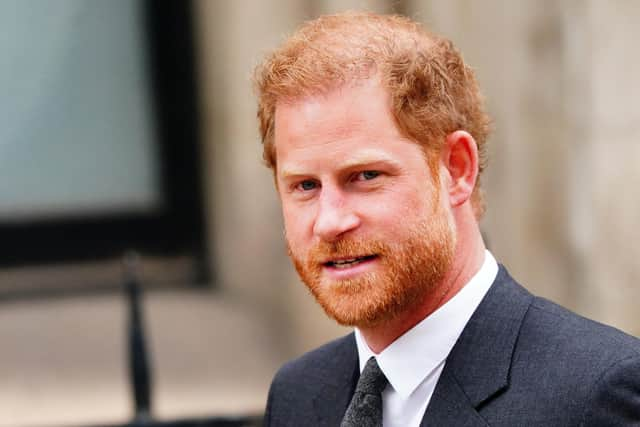A tale of two court cases; why Prince Harry may face deportation as new court case unfolds in the US
People in this article
This article contains affiliate links. We may earn a small commission on items purchased through this article, but that does not affect our editorial judgement.
and live on Freeview channel 276
It’s set to be a gruelling week for Harry, Duke of Sussex this week. Already reports have emerged that the presiding judge for the Mirror News Group phone hacking case, Mr Justice Fancourt, was not happy that he ditched the opening day of the trial to spend time with Princess Lilibet on her birthday, but also the National Portrait Gallery have removed a 2010 painting of Harry with his brother, Prince William. No official reason has been given, and Kensington Palace have issued a statement saying it was not a request from themselves.
But that’s merely the tip of the iceberg for the Duke of Sussex, as he now becomes the subject of another court case in the United States - but this time, he is on the receiving end of allegations rather than being in the middle of allegations being cast. The reason? Not being completely honest with his US visa application ahead of moving to the country - and it’s all thanks to his bombshell memoir ‘Spare’ revealing aspects he should have admitted during the application process.
Advertisement
Hide AdAdvertisement
Hide AdAmerican conservative political research group, the Heritage Foundation, has filed a lawsuit against America's Department for Homeland Security (DHS) to establish if the correct rules were followed in granting the duke his visa. Under US law, admission of, or evidence of past drug use, can be grounds to reject a visa application.
Lawyers for the Heritage Foundation point to two key questions in the US DS160 visa form. The first asks: "Have you ever been a drug abuser or addict?" The second asks: "Have you ever violated, or engaged in a conspiracy to violate, any law relating to controlled substances?"
As we discovered through ‘Spare,’ Harry discussed his drug use, which included the use of cannabis, cocaine and magic mushrooms. The Heritage Foundation have indicated that this isn’t merely going after a high-profile member of the Royal family, but simply a consistency regarding visa approvals in the United States; the foundation were previously involved in ensuring musician Pete Doherty was banned from the country in 2010 due to his well documented drug use.


The counsel for the Heritage Foundation, Sam Dewey said: "The government has taken the position that 'there's nothing to see here'. We've taken the position that no, if you look through all the details of his admissions, you look at the drug laws, you look at the laws on admissions, there's a real serious question as to whether or not he should have been admitted."
Advertisement
Hide AdAdvertisement
Hide AdHe continued: "The alternative, if he didn't disclose the drug use - then there's a very serious question as to whether or not proceedings should have begun against him for that."
The case will begin with a ruling by the judge as to whether the US Customs and Border Protection Agency must accelerate its work to determine what records they hold of the visa application. Ultimately the judge must rule on whether it is in the public interest to release the prince's application form, or parts of it.
If it turns out that it is in the matter of public interest, then we will discover if Harry was honest with his application form, or if The Heritage Foundation have a point, and the US visa office have turned a “blind eye” on Harry’s application due to his Royal links.
Comment Guidelines
National World encourages reader discussion on our stories. User feedback, insights and back-and-forth exchanges add a rich layer of context to reporting. Please review our Community Guidelines before commenting.
